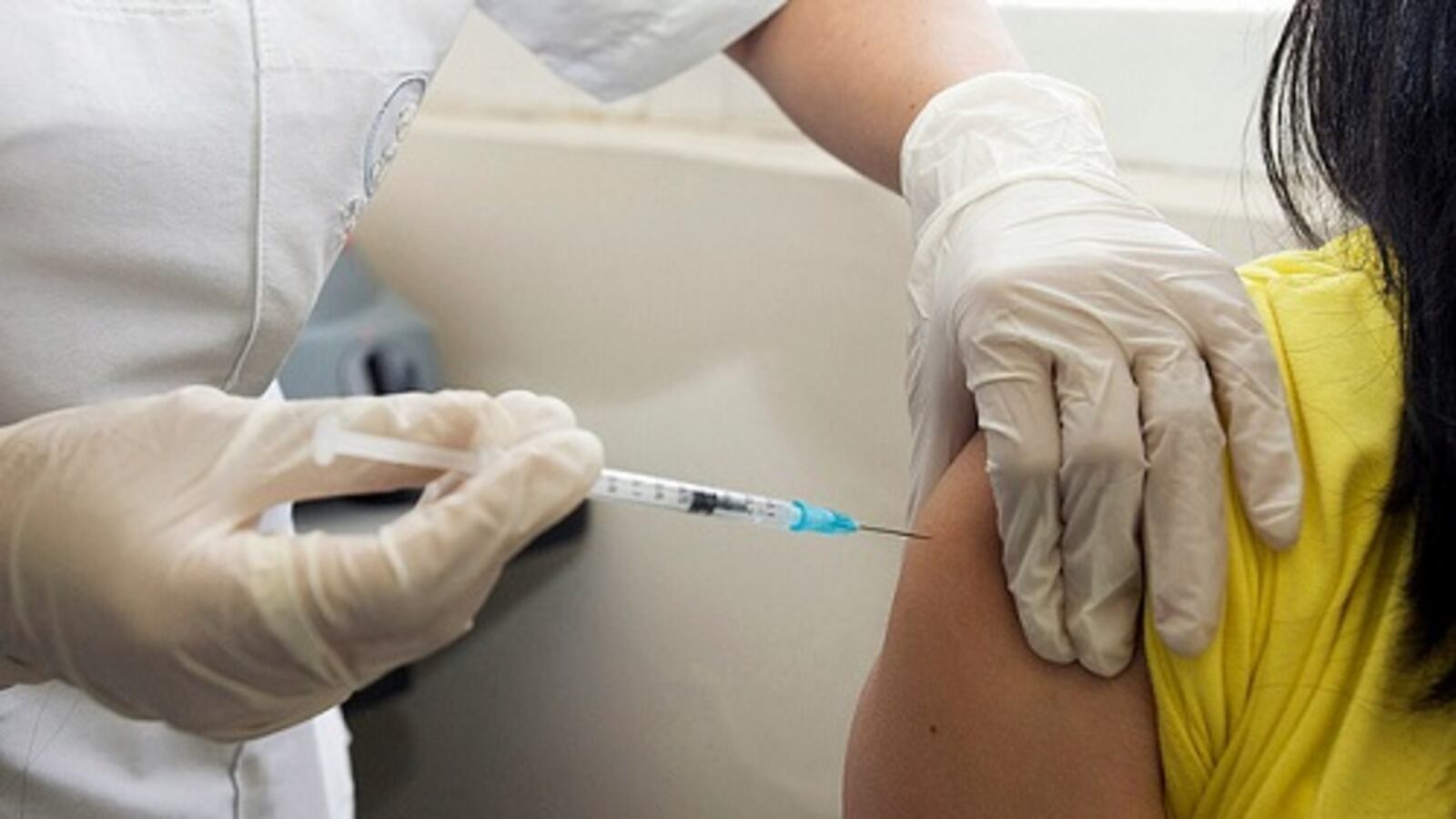Chalkbeat Colorado has added 132 more schools in 10 Colorado districts to its database of immunization compliance and exemption rates. The database—first published in February–now includes schools in the state’s 30 largest districts.
The latest round of additions includes schools in the Pueblo 70, Cheyenne Mountain, Widefield, Fountain-Fort Carson, Lewis-Palmer, Adams 14, Mapleton, Montrose & Olathe, Eagle County and Roaring Fork districts.
Compliance rates indicate the percentage of students who are fully immunized, have signed exemptions, or are “in process” of getting required shots. Under state law, parents can opt their children out of some or all shots by signing an exemption form.
Among the highlights from the latest batch of data:
- 16 schools had exemption rates of 10 percent or higher, with 11 of those in Colorado Springs-area districts.
- The school with the highest exemption rate–22 percent– was The Vanguard Junior High School, a charter school in the Cheyenne Mountain district.
- 64 schools, or nearly half the group, had exemption rates lower than 5 percent.
- 11 schools had compliance rates lower than 90 percent, including four in the Fountain-Fort Carson district.
- 60 schools had compliance rates of at least 99 percent, indicating that staff diligently track and collect student immunization and exemption paperwork.
State database coming
Prior to 2014-15, schools were not required to publicly disclose their immunization and exemption rates. That changed with the passage of House Bill 14-1288 last spring. Now, all Colorado schools, including charter schools, private schools and child care facilities, must reveal their rates upon request.
It’s well known that Colorado has lower immunization rates and higher exemption rates than most other states, but until now there has been no way to access the rates for individual schools. School-by-school rates can provide a valuable yardstick for parents, particularly those with babies, young children or immunosuppressed family members who are more vulnerable to disease.
Transparency will increase even more in the 2016-17 school year when the state health department unveils a new public database of school immunization and exemption rates. While HB 14-1288 did not require such a database, recent rule changes by the State Board of Health moved the project forward.
In addition to clearing the way for the state database, the recent rule changes will also create a set date–Dec. 1–by which districts must report immunization and exemption rates. Currently, there is no established deadline for reporting.
Diana Herrero, deputy chief of the health department’s immunization branch, said part of the hope in establishing the Dec. 1 deadline is that the database can be published early in the next calendar year, during the annual school choice window.
It remains to be seen how or if the public release of rates will affect parents’ school choice decisions, but some advocates of the law believe it could make a difference. After the publication of Chalkbeat’s database in February, some Colorado parents upset about low compliance rates said they would consider moving their children to different schools next year.
Efforts to improve rates
With a brighter spotlight this year on school immunization rates, some districts are making efforts to boost their rates, either by improving data collection processes or educating parents about immunization resources.
In Cheyenne Mountain, district staff have tightened up the enrollment process so that families who show up without immunization paperwork are immediately contacted by nursing staff. Previously, they were sometimes offered exemption forms by the secretarial staff, who typically were the first school employees parents saw, said Carolena Steen, deputy superintendent for student services.
Other districts are making efforts to ensure families have easy access to immunizations. Next week, the Widefield district will host a low-cost vaccination clinic offered by the county health department.
The district’s Director of Communications Samantha Briggs said while immunizations haven’t been a topic of concern in the district this year, administrators figured, “Let’s take advantage of this and just kind of make it easier on parents.”
“We have a pretty good [compliance] rate, but we just thought let’s try to make it better,” she said.
Database terminology
Compliance rates include the percentage of students who have gotten all required immunizations, have signed exemption forms, or are “in process” of getting up to date on their immunizations. High compliance rates indicate that schools are doing a good job collecting immunization and exemption paperwork, and ensuring that students are complying with state law. High compliance rates don’t necessarily mean that all those students are fully immunized. Some “compliant” students may be partially immunized or unimmunized.
Exemption rates represent the percentage of students whose parents have opted them out of some or all required shots. In Colorado, there are three types of exemptions: medical, religious, and personal belief. The majority of parents who excuse their children from immunizations use personal belief exemptions. Exemption rates are one component of compliance rates.
High exemption rates—around 10 percent or higher–can have serious implications when there are outbreaks of contagious diseases like measles or whooping cough. That’s because herd immunity usually requires immunization rates of 90-95 percent. If too many students in a school have opted out of shots, the spread of disease is more likely. The same may be true when compliance rates drop below 90 percent, even if exemption rates are low.
To find immunization compliance and exemption rates for schools not listed in this database, make a direct request to the school or district of interest. Then let us know that information and we’ll add it to our database.
Note: Most districts provided compliance and exemption rates for their charter schools, but some did not. If you would like to add your school’s or district’s rates, please send an email to co.tips@chalkbeat.org.

